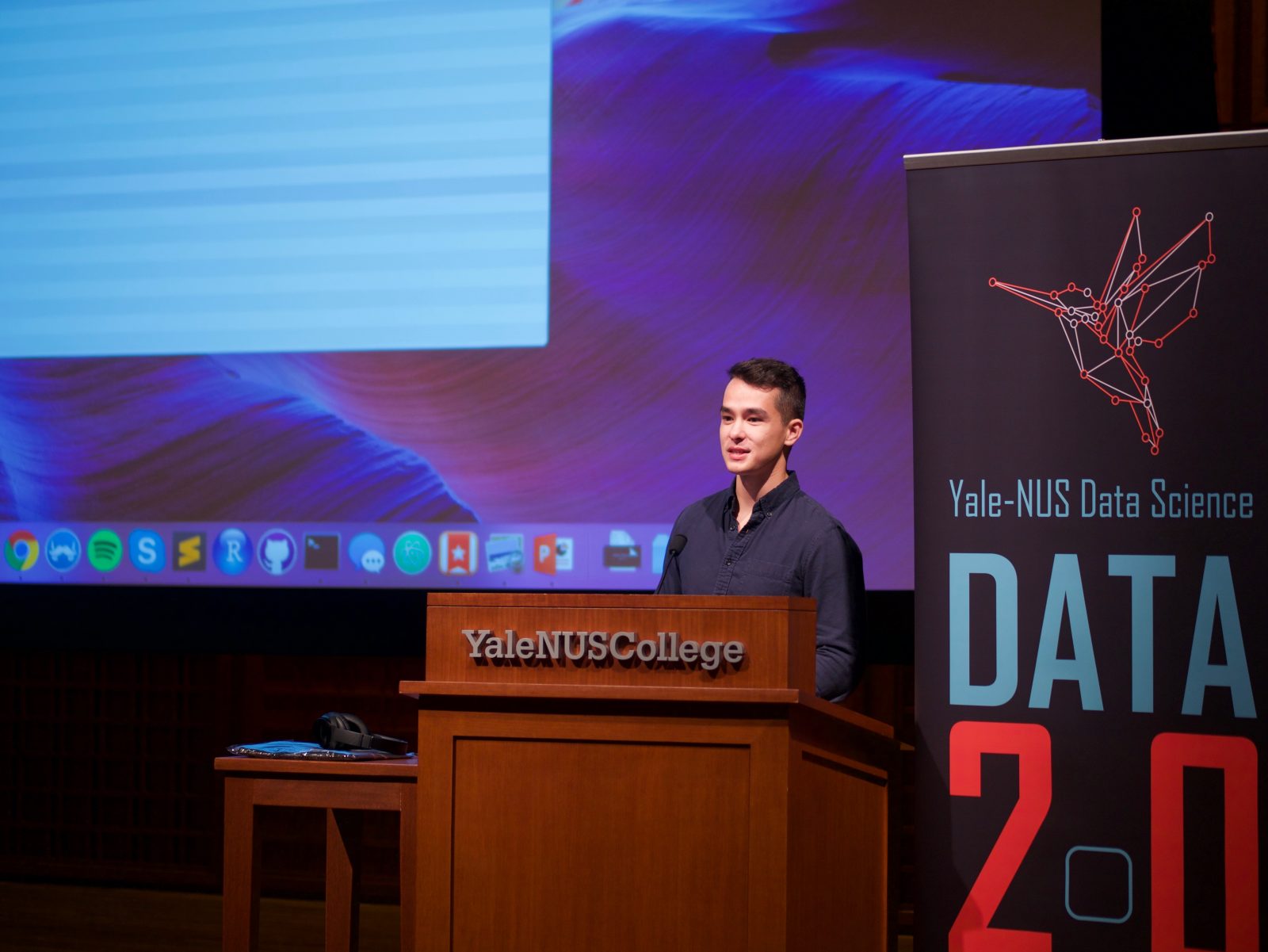
“Do or do not, there is no try,” once said great Jedi master Yoda, whose likeness peered out from a tranquil pond below DBS Bank’s Asia X office, located in LucasFilms’ aptly-named Sandcrawler building. Students participating in Yale-NUS’s Data 2.0 Hackathon kept these words in mind as they tackled a range of datasets, from air pollution to transportation to water use, to answer questions on Singapore’s environmental future, on March 17, 2018.
The datathon’s goal was to use data science to devise sustainable solutions for real-world challenges. Giving rare access to some of its transaction data, DBS challenged students to explore if and how environmental and social factors like air pollution and traffic congestion could impact consumer spending. Students were also given access to a range of other datasets that covered meteorological, environmental and socioeconomic information about Singapore. Is there a link between infant mortality and air pollution? Does energy use rise when temperature increases? The participants’ task was to answer questions like these and identify correlations, synergies and anomalies across different issues.
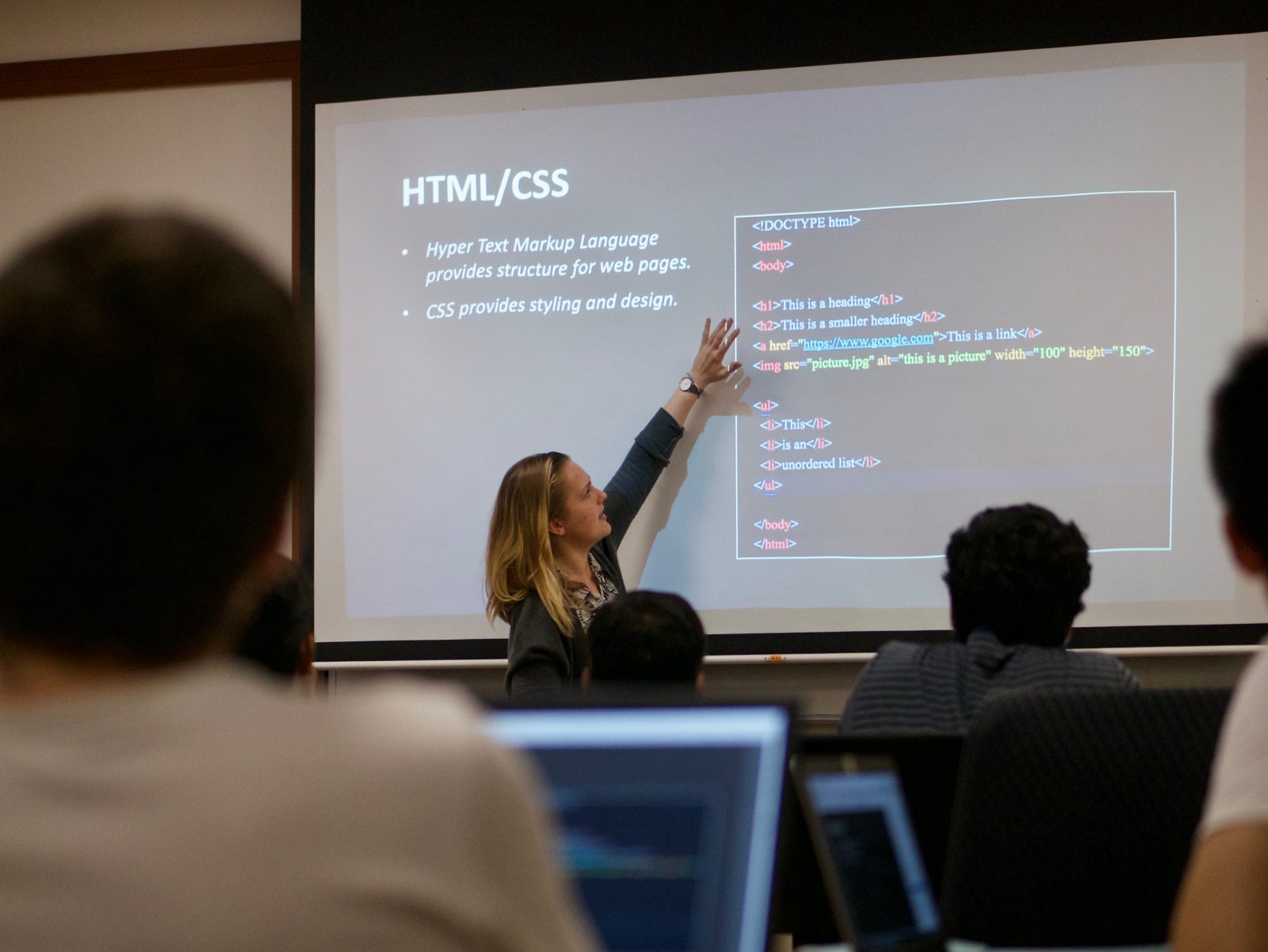
DDY Research Assistant Sophie Janaskie giving a web-scraping workshop.
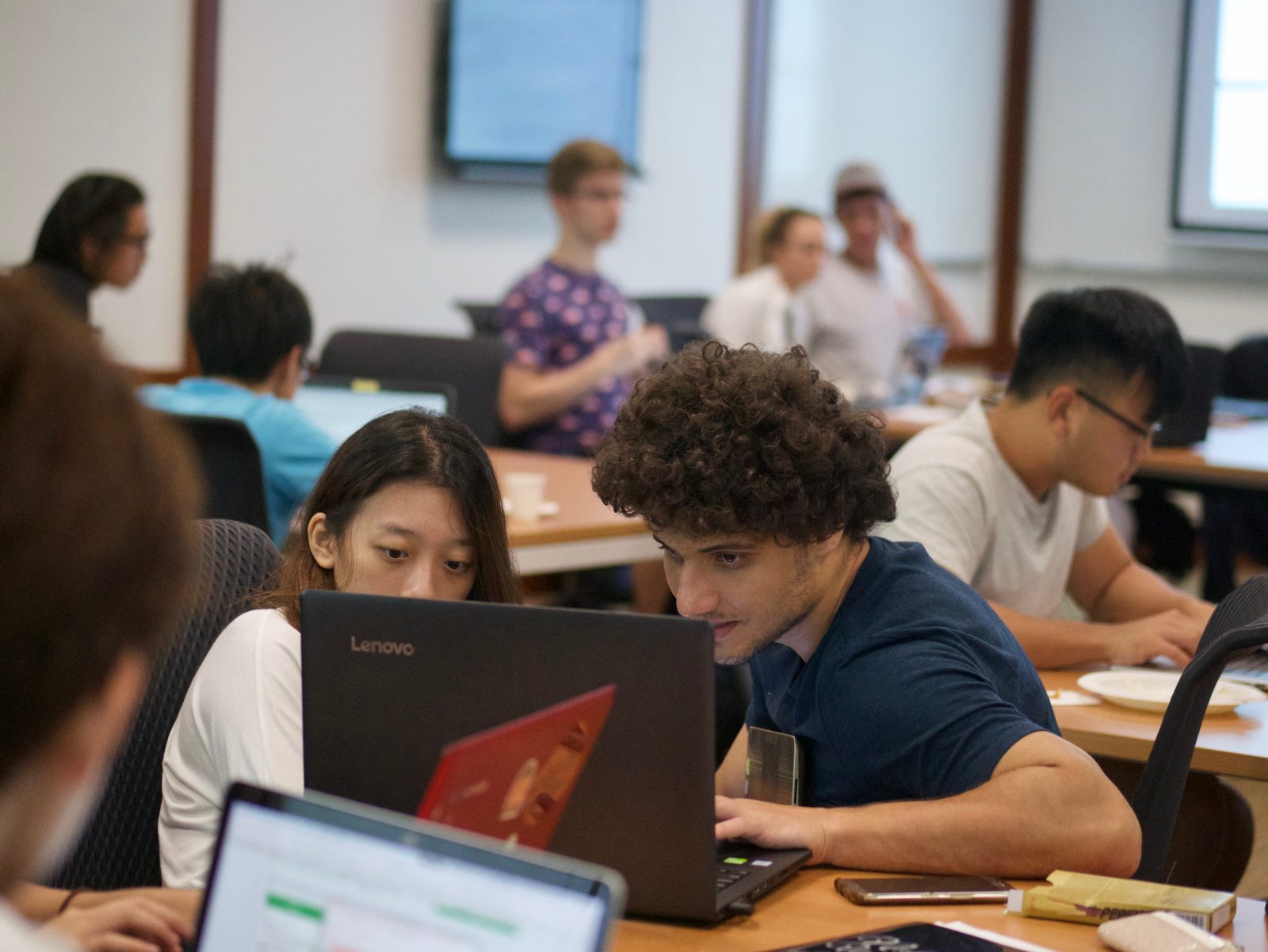
Students working hard to crack the code.
More than 35 undergraduate and graduate students from National University of Singapore and Yale-NUS College formed seven teams to compete in the one-day hack. After eight hours of intense brainstorming, coding and troubleshooting, teams presented their results in front of a judging panel that consisted of Angel Hsu, Assistant Professor of Environmental Studies and DDY’s Founder and Director; Mikkel Larsen, Chief Sustainability Officer at DBS; and Robby Tan, Assistant Professor of Computer Science at Yale-NUS College. Final presentations were assessed based on their level of creativity, relevance to the sustainability theme, their statistical robustness, good use of data, as well as the style and effectiveness of teams’ communications and visualizations.
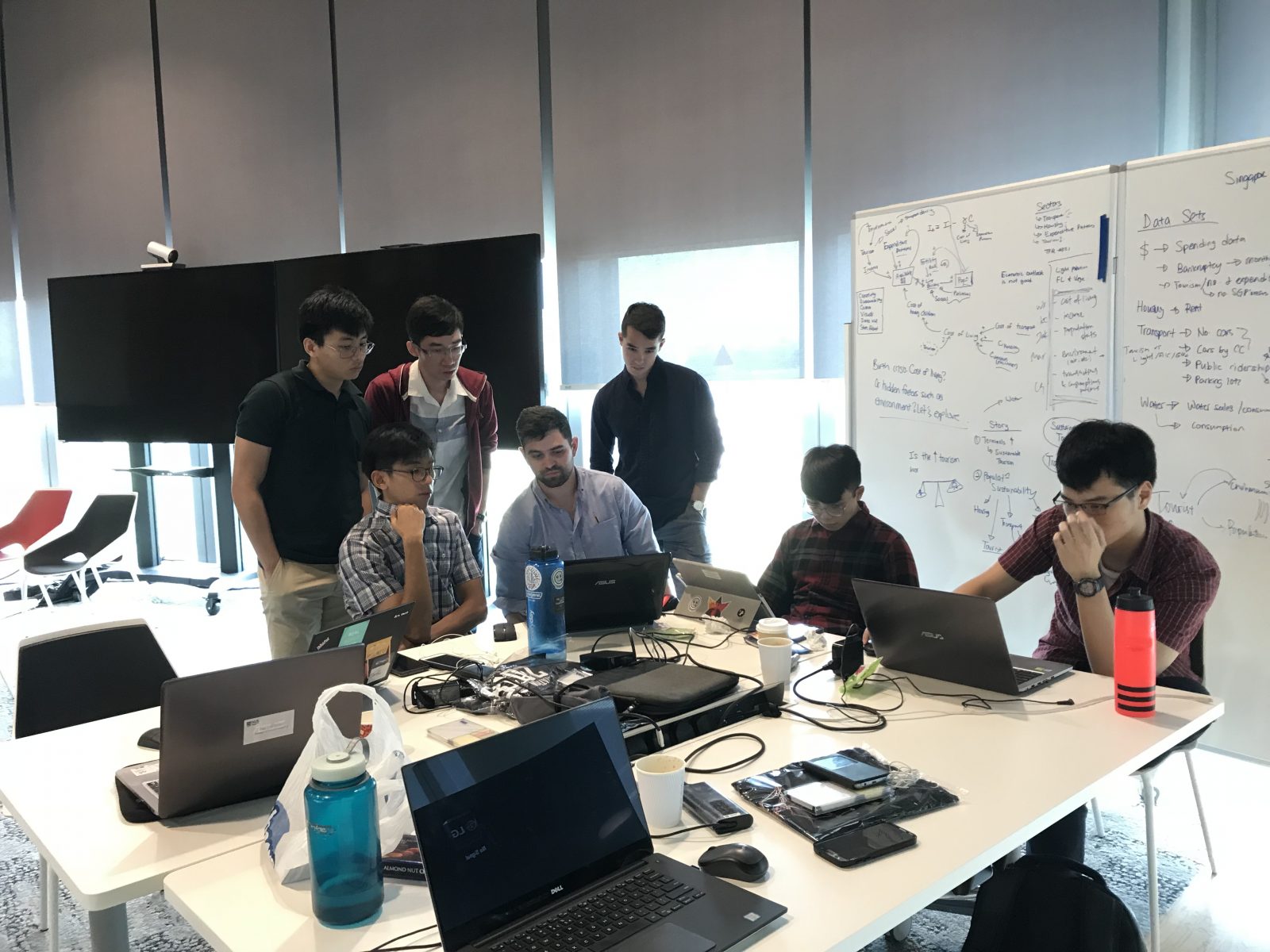
Matt Moroney mentoring participants during the datathon.
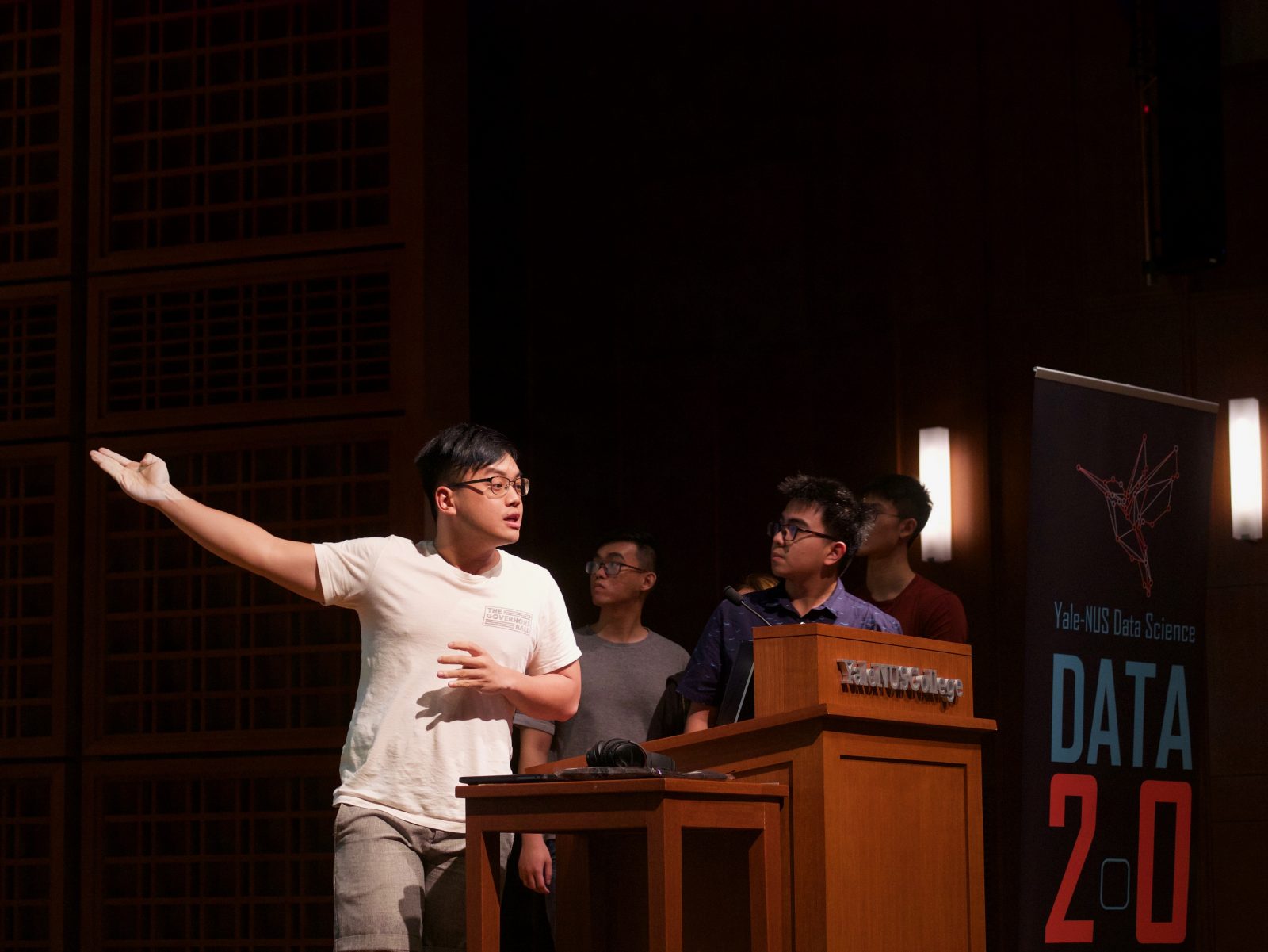
The winning team presenting their findings at Yale-NUS Performance Hall.
Five students from Yale-NUS College and National University of Singapore — Horatio Ho, Jasmine Tan, Bryan Tan, Peeranat Tokaeo and Goh Wei Wen — came out on top. Their winning presentation, “(Ride) Sharing Is Caring,” analyzed the carbon footprint of different modes of transportation in Singapore and visualized their results using the R Shiny package. In a short timespan, the team managed to find statistical evidence to tell a coherent story about ride sharing’s rise in Singapore and its relative environmental impact. The team presented the findings in an interactive dashboard that allowed users to adjust sliders to compare per passenger carbon footprints under different transportation use scenarios.
“I hope that the next generation of aspiring data scientists take this datathon as an example of what you can do with data to solve societal and environmental challenges instead of making more apps. Corporate data philanthropy will be an essential tool to solve local and global problems. You must be an advocate for it by being an experimenter, demonstrating what they never realized was possible,” said Matthew Moroney, a second-year Masters of Environmental Management student at the Yale School of Forestry and Environmental Studies and Research Assistant at DDY.
The Yale-NUS Data 2.0 event was preceded by a series of DDY-led training workshops at Yale-NUS College for students from all across Singapore. Data-Driven Yale graduate student researchers Matt Moroney, Sophie Janaskie, John Brandt, Tirthankar “TC” Chakraborty and Diego Manya conducted workshops that covered topics including web scraping, geospatial analysis, statistical analysis and data visualization.
“I appreciate how the DDY data scientists approached data from a social science angle, which is particularly useful for Yale-NUS College students, who would benefit from having quantitative skills to interdisciplinarily engage with social issues,” said Geoffrey Martin, a third-year Mathematical, Statistical and Computer Science student at Yale-NUS and organizer of the datathon.
Workshop participants also found the data science skills introduced by DDY members valuable and inspiring. “The workshops were extremely useful for a crash course in data analysis,” said Bryan Tan, a second-year student from Yale-NUS College. Another participant, Peeranat Tokaeom, a Yale-NUS freshman, said, “the workshops opened my eyes to the potential of statistical analysis, data visualization, and R.”
In addition to DBS and DDY, the Data 2.0 event was sponsored by Yale-NUS College, with the support from Yale-NUS Women in Technology Society, and featured mentors from Visa.
To access video recordings of the workshops, visit here.

Recent Comments